Welcome to the second half of our celebration of songs of the new wave era. If you haven’t read the first part yet, please start here. As we noted in part one, it’s likely that few bands really wanted or encouraged using the new wave tag, but, keep in mind, most bands loathe any genre or attempt at pigeonholing.
“It’s sort of an historical term now,” says the Cars’ keyboardist Greg Hawkes. “I don’t know if we really minded it back then. It was just one of those things where ‘new wave’ was almost like a joke term to us. It seemed to be a generic catchall phrase for bands that weren’t punk but weren’t like hard rock and heavy metal. To a degree some of the bands, maybe, had a little bit more of arty edge to it: Talking Heads, Devo, us. An art student approach to being in a rock band.”
“Rock Lobster”—The B-52’s
Silly, sexy (you do know what “bakin’ potatoes bakin’ in the sun” and a “rock lobster” are, don’t you?) and dance-floor delight of the late ’70s, re-envisioning that Beach Blanket Bingo era for a modern ambi-sexual audience. The kids are hoppin’ on the beach and the fish are doing the same in the sea. A sprightly keyboard-based melody buoyed by a dizzying array of sound effects, a spiel of fish name-dropping from Fred Schneider and a climax of “Here comes a bikini whale!”
“There Ain’t Half Been Some Clever Bastards”—Ian Dury and the Blockheads
There was no better, wittier wordsmith (and proto-rapper/singer) than Dury and he and the Blockheads could tackle any pop, rock, jazz, reggae, music-hall style of music. This one salutes a universe of clever bastards—Noel Coward, da Vinci, Einstein, Segovia, among them—and the backing vocals run “lucky bleeders, lucky bleeders.” Dury croons, “Now that we’ve had some, let’s hope there’s lots more to come.” The late Dury – he died on March 27, 2000, at age 57 – was one clever bastard himself.
“Lucky Number”—Lene Lovich
An insanely catchy, hiccupping song about loneliness and togetherness, where Lene’s lucky number changes from 1 to 2 over the song’s course, but the glee maintains. Big banging percussive punctuation from guitarist Les Chappell and company with Lene’s cuckoo clock, setup call of “Ah-Oh! Ah-Oh.”
“Can’t Make Love”—Wall of Voodoo
Like many, Stan Ridgway wrestled with sex and love: Can you have the former without the latter? Of course, the answer was YES. But still sometimes your intended needed some cajoling. Ridgway led this arch, wry group from L.A. and he served up this modern day (com)plaint in a joyously clanking pop song, singing, “I can’t make love to girls in this city/’cause the girls say I will use them.” (He also switches gender midway through—“the boys in the city.” Whether he was singing from a girl’s viewpoint or staking a progressively pro-gay claim, I don’t know.) Ridgway’s incessant plea: “I’m a nice guy but I don’t love you/I just wanna sleep with you.” Nice guy anthem.
“So Lonely”—The Police
Teeter-tottering between skanking reggae and full-on rock, the trio bring the fire as Sting plays the heartbroken, abandoned lover—“So lonely! So lonely!”—prompting young women everywhere to rush to his comfort.
“Shot By Both Sides”—Magazine
Out of the Buzzcocks came singer-songwriter Howard Devoto with Magazine, bringing a bit of prog to punk. In this brilliant opening salvo, the frenzied musical action is ricocheting around him and he’s stuck in the middle thinking he’s been “shot by both sides, they must have come to a secret understanding.” Is he exaggerating the protagonist’s sense of self-importance—that two sides would care enough to conspire to kill him? Is he paranoid? Or truly are there forces at work that want him dead? An anthem for anyone who’s felt just a bit persecuted at times.
“Up the Junction”—Squeeze
The top pop song without a chorus and one of the best three-minute narratives of any day. Just waves of hopeful verses from Glenn Tilbrook with a twist at the end, the singer surmising, “So it’s my assumption, I’m really up the junction.” (Stuck.) What gets him there: Dating, courtship, blue-collar job, marriage, fatherhood, separation, and ultimately solitude all sung with blithe cheer, both real and false.
“Uncontrollable Urge”—Devo
They became more of a synth-oriented pop band in the “Whip It” era, but they first came out of the gate with bracing, if arch, art-rock, with this early Devo track conveying exactly what the title says. The rhythmic guitars lurching in lockstep, about to zoom every which way, singer Mark Mothersbaugh can barely contain himself—but has to!— because that’s what Devo must do.
“Tattooed Love Boys”—Pretenders
Chrissie Hynde spins a curdling, fierce song of sex and power—defiant yet submissive—with a series of jolting, killer licks from guitarist James Honeyman Scott.
“Dancing With Myself”—Billy Idol
In 1981, solo artist Idol issued a remix of the song he did with his punk band, Generation X, in 1980 and tailored it perfectly to the new wave dance floor crowd. An anthem of alienation everyone could relate to in those days of wanting-to-meet-someone-special/despairing-of-doing-so, and as such, sinking another drink, giving you time to think … while you keep dancing with yourself. Kinda genius.
Again, if you haven’t read the first part of our look at classic new wave songs, please do so here.
- Interview: Ringo Starr’s Drum Beat Can’t Be Beat - 07/06/2025
- 10 Songs That Defined New Wave Music - 07/01/2025
- Mark Farner Interview: Grand Funk Railroad’s Legacy - 06/05/2025

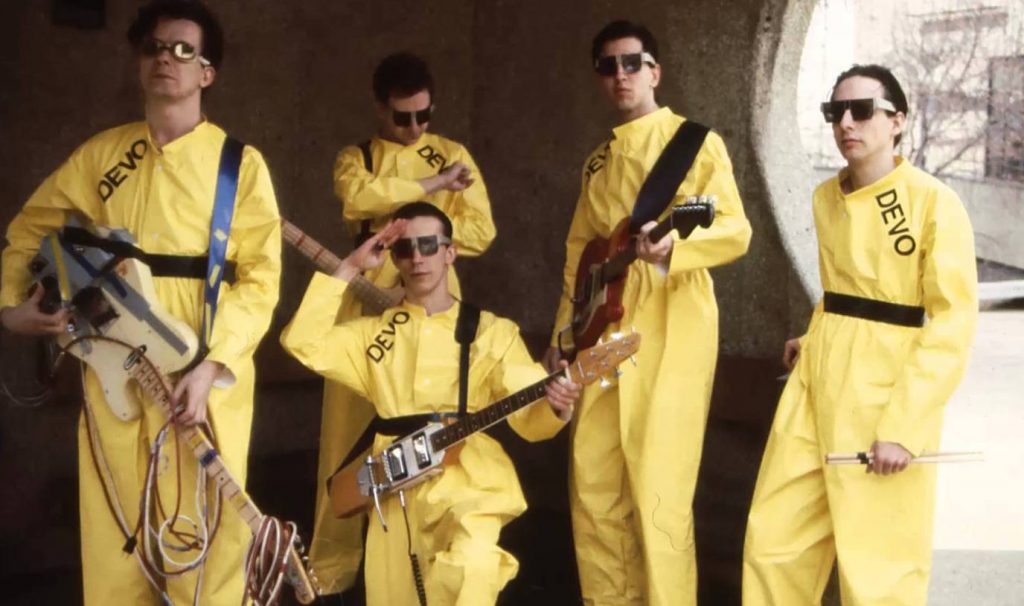
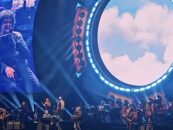
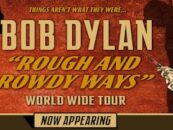
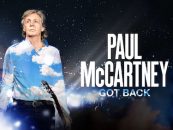
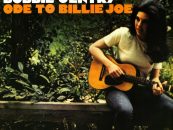

5 Comments so far
Jump into a conversationNew wave hit when I was in 10th grade (1978). To most rock’n’rollers at that time, it was “uncool”. It was music that gave nerds and misfits a voice. At the time, I was into hard rock, so I kinda loathed it. The first New Wave songs I clearly remember making it to rock radio were “Roxanne” by the Police, and “Just What I Needed” by The Cars. All of the other New Wave bands were still underground at that point, but that all changed when MTV launched.
To my memory, while there were so many great “New Wave” bands, and probably many more not so great ones, it was The Cars first album that really introduced that sound to the mainstream. But the Car’s sound was not really very far from a retro rockabilly sound, and, therefore was not a big musical jump, making them immediately more musically accessible. It was the sound of their vocalists that gave them that New Wave edge. But my first exposure to what was being called New Wave, was a sampler ep a friend of mine had gotten. On it, was a cut of “Satisfaction,” by Devo, and another song, the title I don’t remember, by a band called The Talking Heads. The music from both these bands seemed so abhorrent to me at that time, and from ears attuned to rock and roll from the 60s and 70s, I could totally not relate to what they were trying to do, at that time. But ears apparently come around, and now even The Sex Pistols sound kind of quaint in an old-fashioned Rock’ n Rolly sort of way.
you can’t leave out the kings of new wave – the knack – my sharona – the only #1 hit of the year in the 70’s that was rock! Also impossible to miss The Romantics “What I Like About You” which must have the longest life of any new wave hit, plus The Beat “Rock and Roll Girl” says it all. thanks!
Pretenders were (late) punk, not new wave. The distinctions between punk, new wave and post punk are a bit blurry but the comment at the end of the article nails it about as much as can be nailed- ‘arty’. Talking Heads, B-52s, XTC. I would add the synthesizer as a hallmark. Punk & synthesizers don’t mix. Pretenders were punk at that stage. Police (‘Roxanne’) also punk initially not (and never) new wave.
Wreckless Eric Whole Wide World